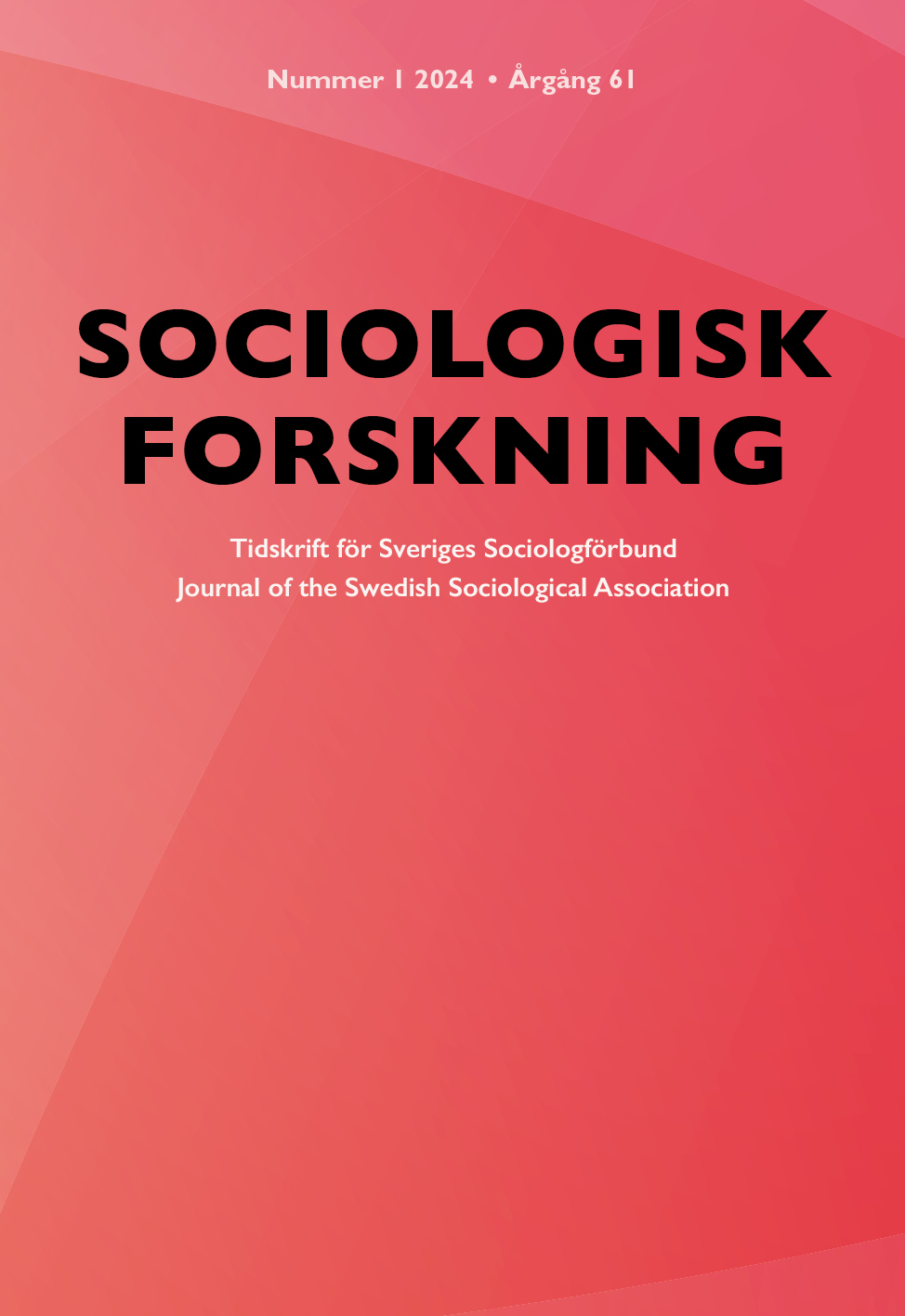Solidarity in social policy – the extent of drain risk
A study focusing on the two dominant political blocs in Sweden
DOI:
https://doi.org/10.37062/sf.61.25710Keywords:
Abstract solidarity, drain risk, political blocs, traditional newspaper, SwedenAbstract
Solidarity is expected to be expressed in concrete action in specific situations. In modern welfare states, however, it has been made abstract in order to appeal to all citizens. Abstraction increases the risk that solidarity is drained of its meaning. Our hypothesis is that the extent of this risk differs between the two dominant political blocs in Sweden, the Social Democratic and the Conservative. It is examined through an analysis of how often solidarity is invoked in traditional newspapers representing these two blocs. When invoked in newspapers from the Social Democratic bloc, we interpret solidarity as being “inclusive”, which is what their ideology refers to. When invoked in newspapers from the Conservative bloc, we interpret solidarity as “exclusionary”, which is implied in their ideology. According to our theory inclusive solidarity is reciprocal and thereby reduces the drain risk, while exclusionary solidarity is characterized as a one-way relationship, which increases the drain risk. The study was carried out during a period when the government changed from Conservative to Social Democratic. According to our hypothesis this would increase the appeal of inclusive solidarity. However, our findings indicated the opposite, an increase in exclusionary solidarity. The conclusion is that the risk of solidarity drain is independent of which political ideology is in power.
Downloads
Published
How to Cite
Issue
Section
License
Copyright (c) 2024 Jörgen Lundälv, Anita Kihlström

This work is licensed under a Creative Commons Attribution-NonCommercial-NoDerivatives 4.0 International License.
All content in Sociologisk Forskning is published with immediate open access, under the Creative Commons license CC BY-NC-ND 4.0.
All content may be read, downloaded, shared and printed for non-commercial purposes, free and without fees. Contents may not be altered. When content is reused, author, source and a link to the copyright licence must be provided. The author retains copyright to their content. No publication fees are charged.





